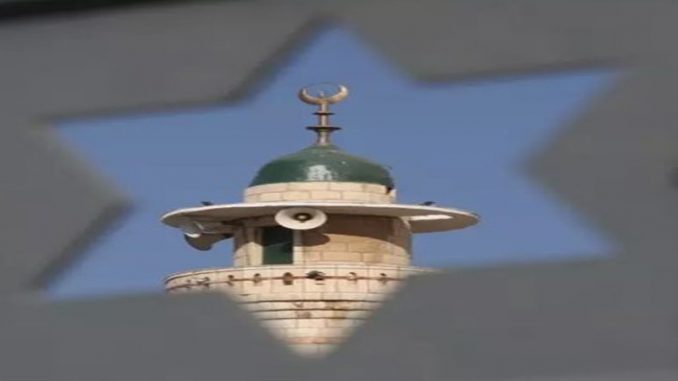According to the Times of Israel, the Muezzin bill was modified to prevent the use of loudspeakers by religious institutions only between the hours of 11 p.m. and 7 a.m., after ultra-Orthodox Israeli Minister of Health Yaakov Litzman filed an appeal against the draft law in November out of fear that it could also affect use of sirens for the weekly Jewish call for Shabbat.
Violations of the ban on loudspeakers during those hours will be fined 10,000 shekels ($2,665), the Israeli news outlet added.
The bill will be submitted to the Knesset, Israel’s parliament, on Wednesday, and will have to go through three rounds of votes before it can pass into law.
Critics of the bill have argued that the draft legislation was superfluous given existing noise regulations, and therefore could be construed as an attack specifically targeting the Muslim right to worship. The current version of the “Muezzin bill” — referring to the men responsible for the call to prayer — only affects the call for the Muslim dawn prayer, also known as the fajr.
Palestinian Authority (PA) spokesman Yousif al-Mahmoud said that the bill was a violation of freedom to worship in Jerusalem, highlighting that the holy city in particular and Palestine in general had a history of respect and harmony between all residents regardless of their religious beliefs.
“It is unbelievable that the long religious and cultural history of the city is being destroyed with the stroke of a pen,” al-Mahmoud added.
Mosques in Israel and East Jerusalem have already experienced backlash for the potential ban, with a mosque in al-Ludd being fined $200 in November for using loudspeakers to broadcast the call to prayer, or adhan.
Earlier that month, a day after a number of Israeli settlers from the illegal settlement of Pisgat Zeev protested in front of the house of Israeli Mayor of Jerusalem Nir Barakat over the ‘noise pollution’ caused by the Muslim call to prayer, Israeli authorities banned the adhan from being projected on loudspeakers in three different mosques in the Jerusalem-district town of Abu Dis.
Adnan al-Husseini, the Palestinian Authority (PA)-appointed governor of Jerusalem, told Ma’an in November that the sound of the call to prayer didn’t rise above an agreed-upon decibel level, adding that Israeli settlers in East Jerusalem were not annoyed by the noise, but by the call to prayer as a reminder of Palestinian presence in the city.
Palestinian communities in Israel and occupied East Jerusalem have long been targeted by discriminatory Israeli policies, whether through “divide and conquer” tactics, attempts at forcibly displacing Bedouin communities, and what has been denounced as a policy of “Judaization” of Jerusalem at the expense of other religious communities.


